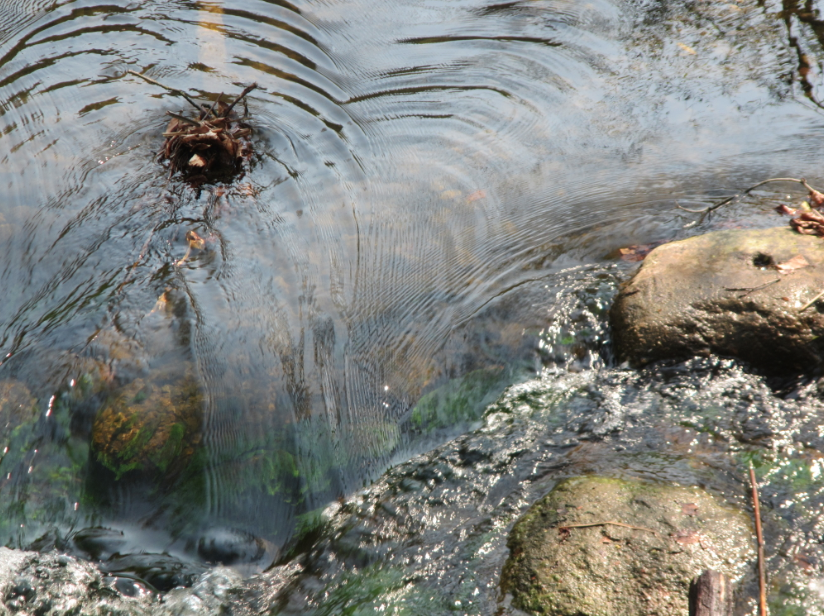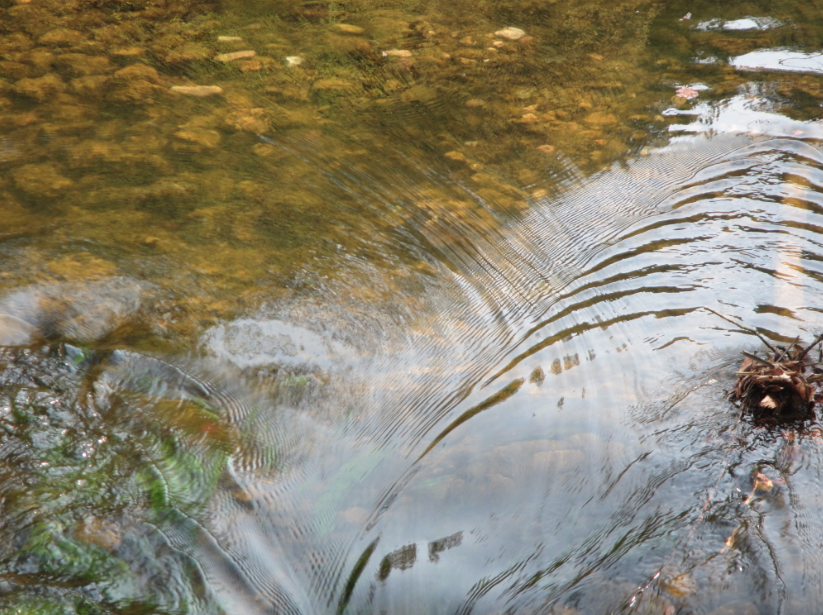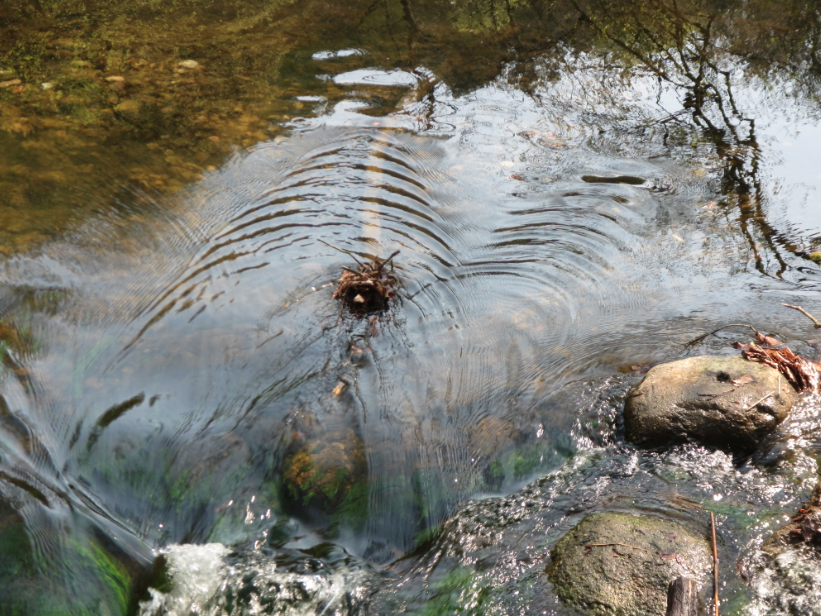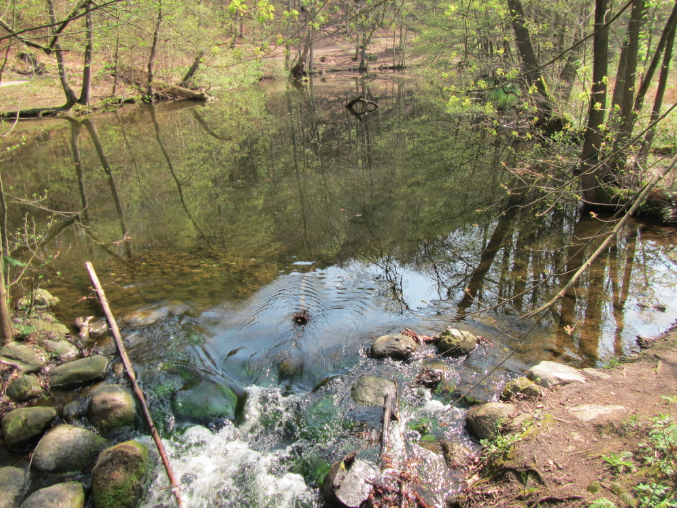
Standing waves
Standing waves caused by rocks in a current.
I am incredibly fascinated by standing waves.

Standing waves.
The standing waves are caused by rocks sitting in a current. From the pictures below it is not really clear where those rocks are situated, whether they are upstream of all this wave action or in the focal point of the wave fronts.

More standing waves.
Having stood there with my mom for quite some time the other weekend, just watching the water, I can tell you that it’s the upstream obstacle. You can see for yourself here:
What you also see in that video is that not all of the waves are, in fact, standing waves. The lower-amplitude waves to the left on both the image above and below are not – they are radiating away from some obstacle.

More standing waves.
Just from looking at that image it is clear that the bathymetry is very irregular and that the current speed is quite inhomogeneous, too. So maybe it is not surprising that the condition for a standing wave – that the current speed and the wave speed are the same, but going in opposite directions – is not met everywhere. Particularly, in many cases it is hypercritical and the waves are just flushed away. Note the current speed in the video below.
And all of this action is happening on an exciting river called … wait for it … Pinnau. In Mölln. And this is what it looks like to most people: Tiny little rapids somewhere in a forest.

P.S.: I just realized that when I’ve talked about standing waves before on this blog, I’ve always talked about the see-sawing kind. When obviously this kind is so much cooler!
Refraction of light in water – sticks and lenses. | says:
[…] ways here and here, another example came to my mind. Remember how my mom and I were watching the standing waves at the Pinnau a while back? That was the same place where we also observed the “shadows” […]
Observing hydrodynamic phenomena on a creek | says:
[…] you might remember this spot, I have talked about standing waves from right there before. Interestingly, the wave pattern in the other post looks really […]